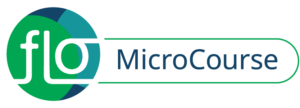Event Description
This Facilitating Learning Online (FLO) MicroCourse will assist participants in managing technology’s impact on the spiritual, emotional, physical, or mental health of themselves and their students. Participants will learn tools for setting healthy boundaries with technology, using those boundaries intentionally, and teaching students to avoid using digital technologies in ways that cause harm. This two–day course offers participants the opportunity to reflect on their own digital well-being, the well-being of learners, and how this work can contribute to the broader journey of reconciliation.
Learning Outcomes
Successful participants will gain an appreciation of digital well-being by:

- Managing technology through actively implementing strategies for spiritual, emotional, physical, and mental health
- Understanding digital literacy as using digital technology intentionally and setting healthy boundaries
- Modeling and teaching digital well-being
Participants can expect to dedicate approximately 60 minutes per day for five days to learning and activities.
Course Logistics
Asynchronous
When: February 3–February 7, 2025
Platform: Moodle Synchronous
While most of the learning will happen asynchronously, we will offer two optional synchronous sessions in Zoom:
- Monday February 3, 2025: 3:00–4:00 p.m.
- Friday February 7, 2025: 9:00–10:00 a.m.
Register Now!
This session will be recorded, archived, and made available publicly on BCcampus.ca. By participating in this session, you acknowledge you are aware your participation will be recorded and the recording will be openly available.
About the Facilitators
Your FLO Facilitators will be Connie Strayer and Robyn Grebliunas.
Connie (she/her) is both Métis and German. With gratitude, she acknowledges the Qualicum and Snaw-Na- Was First Nations on whose ancestral lands she lives, works, and plays. Connie is an educational developer and Indigenous relationship specialist, as well as a regular collaborator with BCcampus. Through a student-centred and decolonized approach to this work, she strives to create systemic change within post-secondary spaces and increase mental health literacy and skills for educators, students, and community members. Connie has had the honour of working under the teachings of many Indigenous Elders, Knowledge Keepers, and colleagues in many of B.C.’s First Nations Communities; these relationships and teachings have influenced her approach to education.
Robyn (she/her) is both Métis and Lithuanian. With appreciation, she acknowledges the Okanagan and Syilx First Nations on whose ancestral lands she lives, works, and plays. Robyn specializes in Indigenous adult education and communication. She is honoured to collaborate with BCcampus on Indigenous education. Robyn is grateful for the many years she has spent working in public and private Indigenous post-secondary education. She is passionate about creating online education learning experiences for adult learners. She has a master’s degree in professional communications, with research embedded in creating relationship efficacy in the digital realm, a helpful tool. Robyn carries an educational philosophy of traditional grassroots learning with a belief in two-way learning and strength-based learning. Robyn has had the honour of working under the teachings of many Indigenous Elders and Knowledge Keepers and in many First Nations Communities in B.C. and Alberta; this opportunity has greatly influenced her approach to education.
